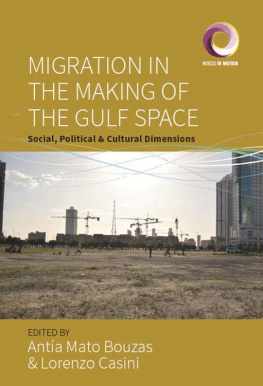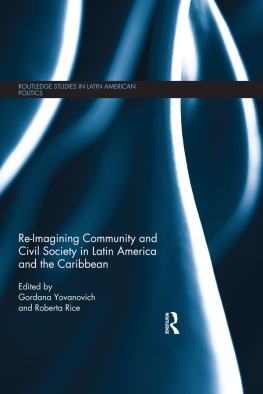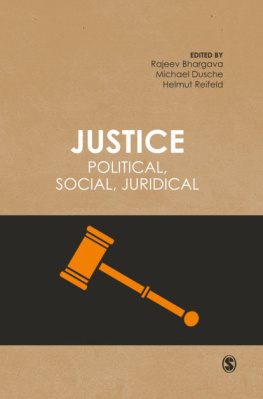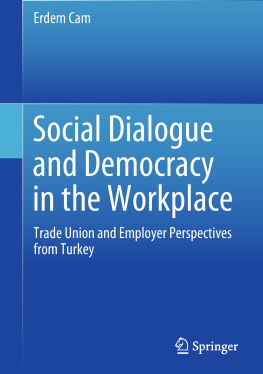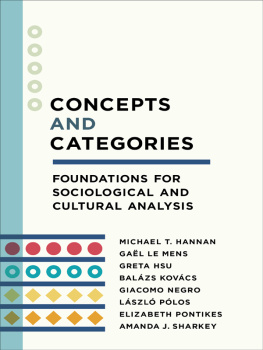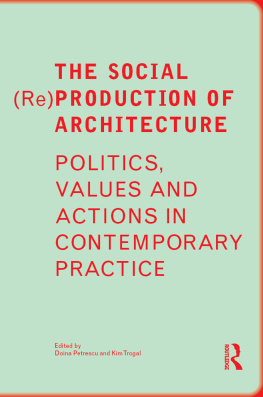First published 2013 by Bloomsbury Academic
Published 2020 by Routledge
2 Park Square, Milton Park, Abingdon, Oxon OX14 4RN
605 Third Avenue, New York, NY 10017
Routledge is an imprint of the Taylor & Francis Group, an informa business
Copyright Elizabeth Ewart, 2013
Elizabeth Ewart has identified her rights under the Copyright, Designs and Patents Act, 1988, to be identified as author of this work.
All rights reserved. No part of this book may be reprinted or reproduced or utilised in any form or by any electronic, mechanical, or other means, now known or hereafter invented, including photocopying and recording, or in any information storage or retrieval system, without permission in writing from the publishers.
Notice:
Product or corporate names may be trademarks or registered trademarks, and are used only for identification and explanation without intent to infringe.
British Library Cataloguing-in-Publication Data
A catalogue record for this book is available from the British Library.
ISBN13: 978-1-4725-3542-9 (hbk)
ISBN13: 978-0-8578-5726-2 (pbk)
Library of Congress Cataloging-in-Publication Data
A catalog record for this book is available from the Library of Congress.
Typeset by Apex CoVantage, LLC, Madison, WI, USA
My deepest gratitude is due to the Panar who, for many years now, have given me a place to hang my hammock and who have watched over me at all times.
I am grateful to the ESRC for providing me with a full Postgraduate Research Award (No. R00429434108). Further financial support over the years was received from the Malinowski Memorial Fund of the Department of Anthropology, London School of Economics; the Royal Anthropological Institute, Radcliffe-Brown Memorial Fund; the British Academy; and the University of Oxford, John Fell Fund. I also thank the LSE for the award of the Robert Mackenzie thesis prize. In Brazil, research was authorized by CNPq (Conselho Nacional de Pesquisa) and FUNAI (Fundao Nacional do ndio). Within the latter, I am grateful to Marcio Santilli and Megaron Txucarramae for signing the necessary permits.
I thank Angela Torresan and her mother, Dona Geysa Torresan, for introducing me to the pleasures and dangers of Rio de Janeiro, where Aparecida Vilaa, Bruna Franchetto, Carlos Fausto, Tnia Stolze Lima, and Marcio Goldman have always been variously hospitable, friendly, entertaining, and kind. Eduardo Viveiros de Castro was instrumental in securing the necessary permits to carry out research. Throughout the long months waiting for research permission, he was unfailing in providing me with practical help, advice, and encouragement for which I owe him my gratitude.
In So Paulo, I was always made to feel at home in the house of Sylvia Caiuby Novaes and her daughters Laura, Isabel, and Camila. I thank Sylvia for her solid friendship, sense of humor and unwavering calm, even in times of crisis. She and her family are one of the many reasons that make Brazil a more wonderful place.
I thank Vanessa Lea for her comments and questions at various points along the way.
Andr Villas Boas of the Instituto Socioambiental in So Paulo offered his advice and help from the outset. More recently, Paula Monteiro and Paulo Junqueira have been valuable interlocutors.
I wish to thank Ozan Duarte and Rita Maria Cavalcanti and their daughters Maira and Naira as well as Luciana Dourado, Professor Roberto Baruzzi of the Escola Paulista de Medicina.
Anthropologists may all too often become somewhat possessive of their people, but I have been extremely fortunate in finding the anthropologists who previously worked with the Panar to be unfailingly supportive and helpful. I owe a huge debt of gratitude to Stephan Schwartzman and Pat Aufderheide. I particularly thank them for their exceedingly generous hospitality during my lengthy stay in Brasilia in 1996. Steve ensured I would be welcomed by the Panar and was generous in sharing with me his thoughts about many aspects of panar language and life. I also thank Richard and Kaye Heelas, who are fondly remembered by the Panar despite all the time that has passed since they last saw one another.
In the northern hemisphere, my progress has been watched over by many people. Special thanks are due to Mary Lou Mettler, the late Charlotte Debbane, Ann and Anthony Thwaite, John Hemming, and the late Adrian Cowell.
I thank my colleagues at the University of Oxford, most particularly Paul Dresch, David Gellner, Laura Rival, and Peter Rivire for their advice and comments on various parts of this book. I also wish to thank the series editors of the LSE monographs, Charles Stafford and Laura Bear, as well as the editorial staff at Bloomsbury for their help in seeing this book through to publication. I am grateful to Michael Athanson at the Bodleian library for his generous help in preparing the map.
In the UK, I have had the privilege to know many supportive and generous colleagues. Among them, I particularly thank Anja Timm, Christina Toren, Evan Killick, Giovanna Bacchiddu, Harry Walker, Istvan Praet, Magnus Course, Margherita Margiotti, Paulo Fortis, Peggy Froerer, Vanessa Grotti, Vicky Dean and the late Steven Rubenstein. This book has also benefitted from conversations with various students at ISCA, particularly Alejandro Reig, Analyn Salvador Amores, Daniel Dolley, Doreen Montag, and Elizabeth Rahman.
On many an occasion, Joanna Overing offered generous encouragement and wise advice, while over the years, Peter Gow provided thoughtful commentary on my work as well as much hospitality, friendship, and support at times of great need. I also wish to thank Allen Abramson for valuable comments many years ago.
My parents, Ronald and Marie Ewart, and my brothers, Alan Rodgers and Michael Ewart, supported me and showed interest in my project even when my studies took me far away from them.


